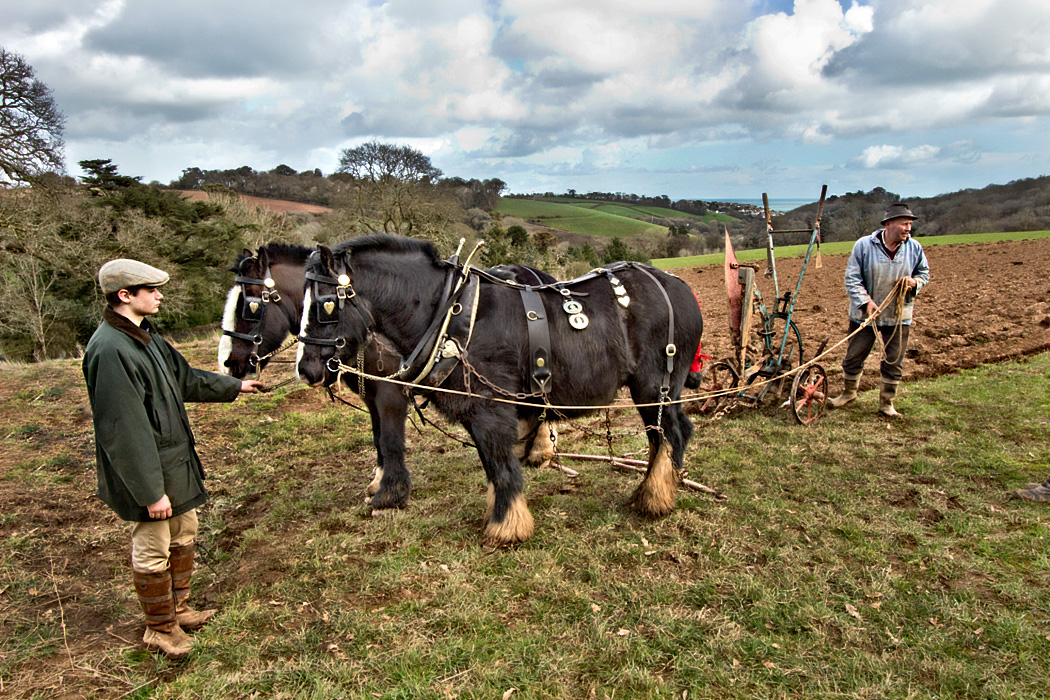This year is the 100th anniversary of World War I and the 70th anniversary of England’s declaration of war against Germany during World War II. In Cornwall, all the young men were drafted immediately and put on a boat to be shipped off for training. Soldiers from towns were kept together, the thinking being that boys who knew one another would fight better together. The war took a terrible toll on the boys of Cornwall, many of whom died fighting in France, spilling their blood on fields of poppies, as so eloquently described in the poem “Flanders Fields.” The Lost Gardens of Heligan in Cornwall this spring began plowing this huge field in the traditional manner, with heavy horses and a manual plow. The field is being planted in red poppies, which will serve as the centerpiece for scores of events to commemorate the war, so that those who so bravely gave their lives shall never be forgotten.


What a great photo! I have an uncle, Len Johns, his father and 3 brothers left their homes in Gunn’s Plains, Tasmania to fight in the Great War, only 3 returned. The Johns family came from Philleigh, Cornwall in 1854 and settled in Tasmania. We are organising a memorial day late November to remember our boys.
Hi Ray. Thanks so much for taking time to leave a comment. My thoughts are with you as you arrange for the memorial. Wish I could be there during the celebration this fall at Heligan.
Nice photo and it makes you wonder how large communities coped with such devastating loss across the board
I had the exact same thought, Michael. The folks I spoke to the day I visited said it absolutely changed forever the culture of England, and I can believe that.
Barbara, What a lovely sentiment and of course, a gorgeous photo!
Thanks Corinne. I’m a pushover for anything to do with WWI or WWII. And it didn’t hurt that the gardens were so beautiful 🙂